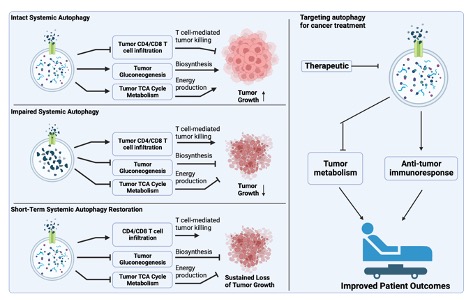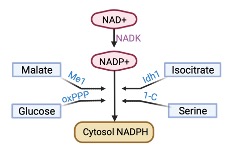Research Overview
Research in the Guo Lab focuses on the cancer metabolism in KRAS-driven lung cancer. We employ the genetically engineered mouse models, along with in vivo isotope tracing and the state-of-the-art metabolomic and lipidomic analyses, and Crispr screening using metabolic sgRNAs library, to investigate metabolic alterations in KRAS-driven lung tumorigenesis. Our research aims to identify metabolic vulnerabilities that can potentially be targeted for cancer treatment.
Autophagy captures and degrades intracellular proteins and organelles, and then recycles the breakdown products in response to metabolic stress, such as nutrient deprivation. Previously, we have demonstrated that cell autonomous autophagy and host autophagy are required to support KRAS-driven non-small cell lung cancer (NSCLC), we will further elucidate the underlying mechanisms and translate this discover to cancer therapy. Additionally, tumor metastasis is the major cause of mortality for NSCLC patients, we are also interested in investigating the role of autophagy in NSCLC metastasis.

Tumor cells use nicotinamide adenine dinucleotide phosphate (NADPH) for redox homeostasis and reductive synthesis reactions to sustain their survival and growth. Consumption and production of NADPH are compartmentalized in the mitochondria and cytosol, subject to precise regulation by multiple metabolic pathways/enzymes. However, the functional importance of different metabolic pathways/enzymes involved in cytosolic NADPH homeostasis are not fully understood in cancer in vivo. We are interested in elucidating the regulation of cytosolic NADPH homeostasis in KRAS-driven lung tumorigenesis, which may lead to new therapeutic opportunities.


